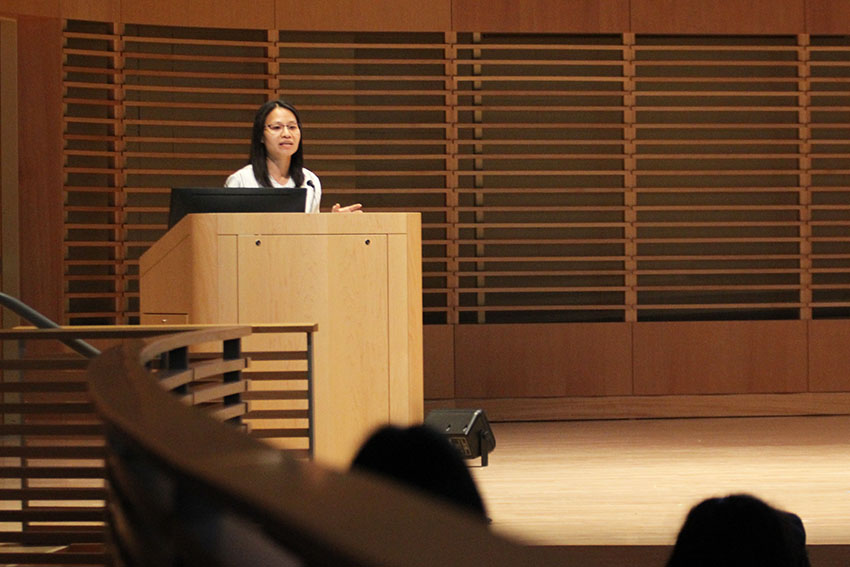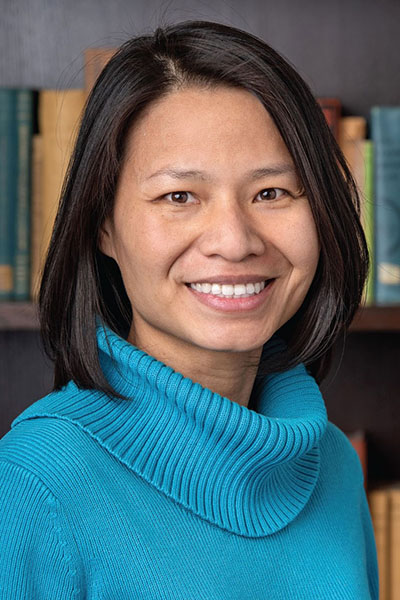- Apply
- Visit
- Request Info
- Give



Published on April 13, 2023

A culinary scholar recently hosted a discussion at Eastern Connecticut State University about the impact of Asian American foodways and culture across the state. Quan Tran, senior lecturer in ethnicity, race and migration at Yale University, presented “Beyond Chinatown: Exploring Asian American Foodways, Identities and Communities in Connecticut” on April 6.
The event was part of Eastern’s Big Read program -- a grant-funded initiative of the National Endowment of the Arts -- which, this year, centered around the novel “Interior Chinatown” by Charles Yu.
“Asian American foodways are about more than just delicious food and Instagram-worthy photos,” said Tran. Rather, they are “meaningful sites” of culture and social interaction.

Tran is Vietnamese American and grew up in California before moving to Connecticut. She arrived on the East Coast with a “snobbish attitude about food,” she said. However, she came to learn that this small Eastern state has an illustrious history of Asian American culture and cuisine.
In her research, Tran set out to learn why many Asian Americans work in the restaurant industry. In the late 19th and early 20th centuries, many Asian immigrants in the United States opened restaurants to get a foothold in business. Later, they would apply for merchant status so they could bring their families to the country as employees.
Tran also explained that while Asian American cuisine is often categorized as “Chinese American” and “Japanese American,” these are “placeholders” because much fluidity exists between them.
During the pandemic, Tran learned more about Phở 501, a Vietnamese restaurant in East Hartford. She shared the “trials and tribulations” faced by the family that operates the restaurant, including moving from Vietnam to Cambodia, Thailand, the Philippines and, finally, East Hartford.
She said that the story of Phở 501 illustrates “how far our foods have traveled” as well as the “holistic space” for cultural celebration that a restaurant provides.
She concluded her talk with a question to the audience: “Are you hungry yet?”
Written by Noel Teter